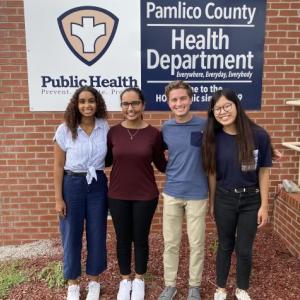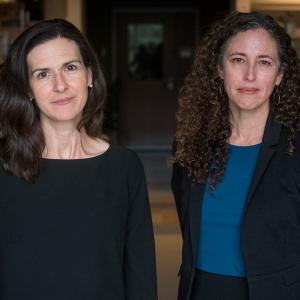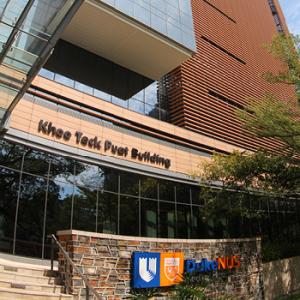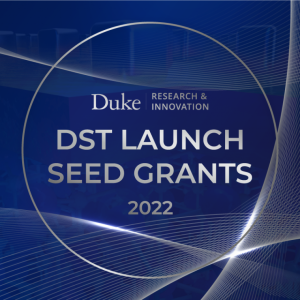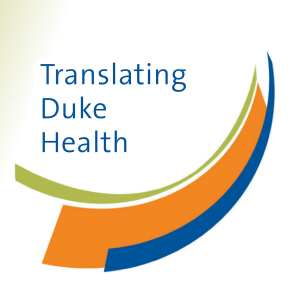Duke Awarded $12M Research Grant to Use Artificial Intelligence to Detect Autism
The Duke Center for Autism and Brain Development has been awarded a $12 million federal grant to develop artificial intelligence tools for detecting autism during infancy and identifying brain-based biomarkers of autism.
Moving from Surviving to Thriving
Duke’s commitment to partnerships across the state took four undergraduate global health majors to Pamlico County this summer. There they worked to address health disparities and disaster readiness.
Mission: Interception — Creating Better Ways to Stop Cancer in Its Tracks
A new Duke Cancer Institute research program co-led by Meira Epplein, PhD, and Katharine Garman, MD, brings together physicians, cancer biologists, epidemiologists, and biostatisticians to develop new ways to identify people at increased risk of cancer — specifically stomach cancer in Black community populations — and to “intercept” the disease before it has a chance to become established.
What Clinicians Need to Know about Cybersecurity
Health systems face elevated threats from cyberattacks. A new perspective piece written by Duke Clinical Research Institute Chief Science and Digital Officer Eric Perakslis, PhD, and published in the New England Journal of Medicine (NEJM) offers a clinicians’ guide to cybersecurity. In “Responding to the Escalating Cybersecurity Threat in Health Care,” Perakslis offers actionable insights to help health care providers protect themselves and their patients from the threats of cyberattacks.
Leukemia Drug Shows Potential Against Metastatic HER2-Positive Breast Cancer
Senior author Ann Marie Pendergast, Ph.D., and researchers from Duke Cancer Institute found a drug approved to treat leukemia successfully disrupted the ability of HER2-positive breast cancer tumors from colonizing the brain.
Out of the Hospital, Not Out of the Woods
A new study comparing discharged COVID-19 hospital patients to discharged patients who were hospitalized for other reasons showed the COVID patients were 45% more likely to experience heart failure within a year following their discharge.
Duke-NUS welcomes its 16th cohort of medical students aspiring to become tomorrow’s clinicians
Duke-NUS Medical School has admitted 72 students to its 16th cohort of the MD program.
Black Maternal Health Disparities Cannot be Ignored
In this Op-ed, Camille Robinson, a fourth-year medical student, 2021-22 North Carolina Albert Schweitzer Fellow, and co-founder of the Black Maternal Health Equity Initiative at the School of Medicine, issues a call to action to address racial disparities.
School of Medicine Faculty Win 2022 DST Launch Seed Grants
Five School of Medicine faculty were among the recipients of funding from the inaugural Duke Science and Technology (DST) Launch Seed Grant Program.
White Glove Service for Brain and Spine Metastasis Patients
The Duke Center for Brain and Spine Metastasis (DCBSM) has become one of the most comprehensive destination programs in the country for treating the growing population of patients whose cancer has spread to the brain, spine, and other parts of the central nervous system.

